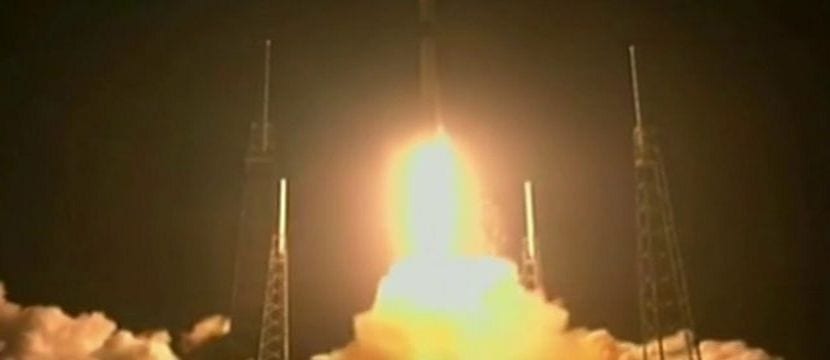
Satellite deployment for Starlink Constellation (Elon Musk's project to provide high-speed Internet from space around the world) started this Thursday. On Thursday night, SpaceX launched its first fleet of 60 satellites in low Earth orbit. As announced by Elon Musk, the 60 satellites flew into space aboard the Falcon 9 rocket from Cape Canaveral Air Force Base in Florida, USA.
After some technical and weather issues that delayed last week's launch, SpaceX finally put its first 60 Sarlink satellites into orbit.
After tweeting last week a photo of satellites on the Falcon 9 rocket, Musk announced that they would be launched on May 15.
But SpaceX delayed the launch for 24 hours for the first time, due to unsuitable weather conditions and a second time for computer-related technical problems.
The 60 satellites weighing approximately 227 kilograms each one threw themselves they are already in low Earth orbit.
This is just the beginning
Musk and SpaceX explained that, significantly, the 60 satellites did not represent much for the moment. According to them, it will be necessary to wait at least six additional launches (about 400 satellites) to offer a minimum Internet service.
SpaceX also said it would probably be another day to see if all the deployed satellites were working properly.
In addition, Musk said in an interview last week that at least 12 pitches are needed. with a similar payload to ensure consistent internet coverage in most countries in the world.
For now, Starlink is only allowed for operations in the United States. That said, Elon Musk's ambitions go beyond simply providing broadband internet on a global scale.

Elon Musk has plans for Mars
Through Starlink, the CEO of Tesla and the private space rocket company SpaceX they want to mobilize the necessary funds for your vision of space, especially that of colonizing the planet Mars.
In fact, in his phone conversation with reporters reported by CNBC last week, Elon Musk said he sees Starlink as a true financing pillar for your next expeditions in space and on Mars in particular.
The Tesla boss is counting on the proceeds from this project to finance his vision of Mars.
These revenues will allow it to make more resources available to SpaceX. to complete their new rocket model that is being developed and will be called the Starship, a new spacecraft to transport paying customers to the Moon and possibly try to colonize Mars.
In other words, Starship is the new fully reusable launch system. that SpaceX is currently developing.
The spaceship has to carry up to 100 people at a time from the Earth to the Moon or the planet Mars.
“We see this as a way that SpaceX can generate revenue that can be used to develop more and more rockets and spacecraft. We believe that we can use Starlink's income to fund Starship, "Elon Musk told reporters last week.
Potential revenue from Starlink's launch activities is expected to be around € 3.000 billion (€ 2.600 billion) per year, a potential estimate despite Starlink not yet registering customers.
In this point, Elon Musk told reporters that Starlink has no clients yet, because he thinks it would be better to have a good understanding of the program. He said that, however, SpaceX wanted to sign with telecommunications operators and also with governments.
SpaceX will likely start selling connectivity later this year or early next, if all goes according to plan.
However, let's not forget the competition. Despite the fact that every 60 Elon Musk Starlink satellites will provide usable broadband capacity, that is, useful capacity from the Starlink network over any geostationary telecommunication satellite currently in orbit and will significantly outperform any other.
Potential competitors for SpaceX include Canadian companies Telesat and LeoSat, which also plan to deploy a fleet of roughly 300 satellites with a usable capacity of roughly eight terabytes in the next few years, and OneWeb, backed by Airbus SE, which launched its own satellite network in February this year.